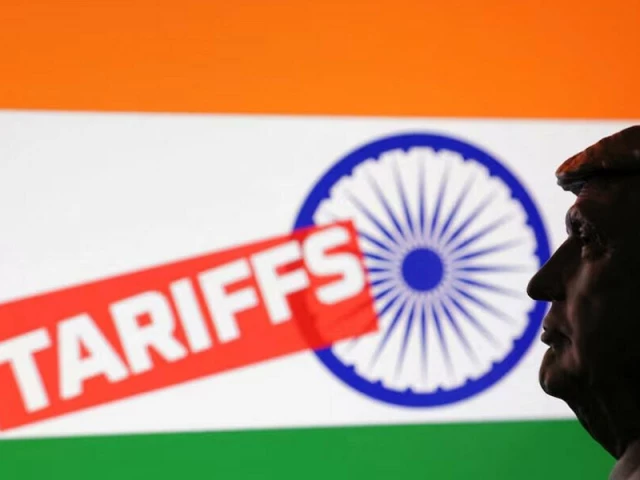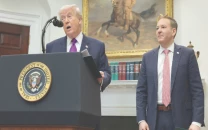Trump’s tariffs trigger boycott calls against US brands in India
Calls to buy local and drop US goods grow in India after Trump’s 50% tariff, straining trade ties with New Delhi

From McDonald’s and Coca-Cola to Amazon and Apple, US-based multinationals are facing calls for a boycott in India as business executives and Prime Minister Narendra Modi’s supporters stoke anti-American sentiment to protest against US tariffs.
India, the world’s most populous nation, is a key market for American brands that have rapidly expanded to target a growing base of affluent consumers, many of whom remain infatuated with international labels seen as symbols of upward mobility. India, for example, is the biggest market by users for Meta’s WhatsApp, and Domino’s has more restaurants than any other brand in the country. Beverages like Pepsi and Coca-Cola dominate store shelves, and people still queue up when a new Apple store opens or a Starbucks cafe offers discounts.
Although there is no immediate indication of sales being hit, there is a growing chorus both on social media and offline to buy local and ditch American products after Donald Trump imposed a 50% tariff on goods from India, rattling exporters and straining ties between New Delhi and Washington.
Read More: Pakistan, India should talk before it is too late
McDonald’s, Coca-Cola, Amazon and Apple did not immediately respond to Reuters queries. Manish Chowdhary, co-founder of India’s Wow Skin Science, took to LinkedIn with a video message urging support for farmers and startups to make “Made in India” a “global obsession,” citing South Korea’s global success with its food and beauty products. “We have lined up for products from thousands of miles away. We have proudly spent on brands that we don’t own, while our own makers fight for attention in their own country,” he said.
Rahm Shastry, CEO of India’s DriveU, which provides an on-call driver service, wrote on LinkedIn: “India should have its own home-grown Twitter/Google/YouTube/WhatsApp/Facebook — like China has.”
Indian retail companies give foreign brands like Starbucks stiff competition domestically, but going global has been a challenge. Indian IT services firms, however, have become deeply embedded in the global economy, with TCS and Infosys providing software solutions worldwide.
On Sunday, Modi made a “special appeal” for self-reliance, telling a gathering in Bengaluru that Indian technology companies make products for the world but “now is the time for us to give more priority to India’s needs.” He did not name any company.
Also Read: India faces tough choices under US tariff pressure
Don’t drag my McPuff into it
Even as anti-American protests simmer, Tesla launched its second showroom in India in New Delhi, with Monday’s opening attended by Indian commerce ministry and U.S. embassy officials. The Swadeshi Jagran Manch, linked to Modi’s Bharatiya Janata Party, held small rallies across India on Sunday, urging people to boycott American brands.
“People are now looking at Indian products. It will take some time to fructify,” Ashwani Mahajan, the group’s co-convenor, told Reuters. “This is a call for nationalism, patriotism.” He also shared a table circulating on WhatsApp, listing Indian brands of bath soaps, toothpaste, and cold drinks that people could choose over foreign ones.
On social media, one of the group’s campaigns is a graphic titled “Boycott foreign food chains,” displaying logos of McDonald’s and other restaurants. In Uttar Pradesh, Rajat Gupta, 37, dining at a McDonald’s in Lucknow on Monday, said he was unconcerned about the tariff protests and simply enjoyed his 49-rupee ($0.55) coffee. “Tariffs are a matter of diplomacy, and my McPuff, coffee should not be dragged into it,” he said.

1644560129-0/download-(20)1644560129-0-208x130.webp)
















COMMENTS
Comments are moderated and generally will be posted if they are on-topic and not abusive.
For more information, please see our Comments FAQ